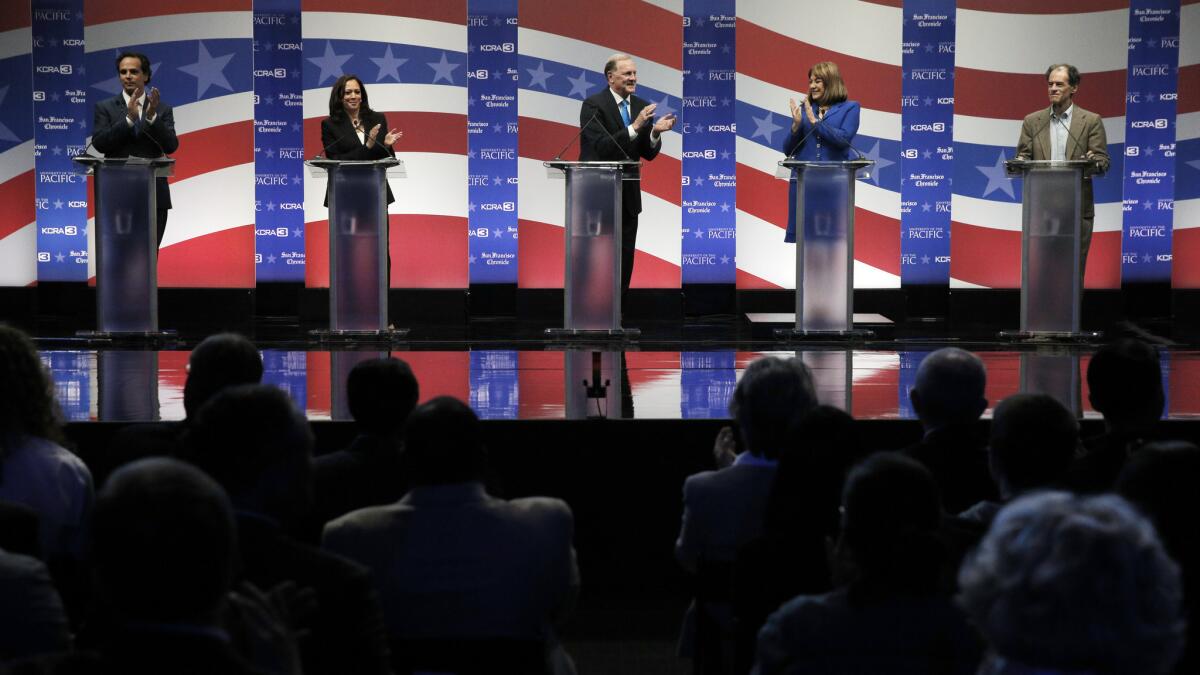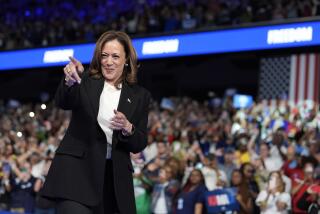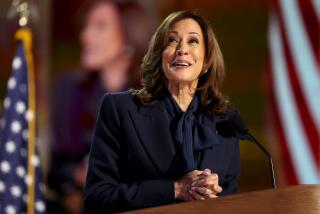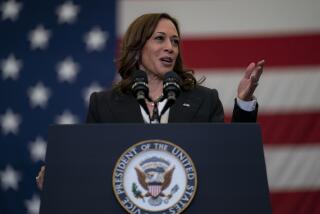Opinion: Why the Harris-Sanchez Senate race is a good argument for California’s top-two system

To the editor: Larry N. Gerston is correct that our state is heading toward one-party rule, but his diagnosis of the cause — the top-two election system — couldn’t be more wrong. The top-two reform is doing exactly what was intended: ensuring that all voters have a say in who represents them despite the political parties’ best efforts to keep people focused on the party, not the person. (“Top-two reform tilts California toward one-party rule,” Opinion, Oct. 5)
The reason for the decline in viable Republican candidates making it to the November ballot in California is because their national party is trying to sell things that our electorate isn’t buying. We Californians reject candidates who sound selfish on taxes, homophobic on family values and racist on immigration.
In California, there hasn’t been a competitive race for the U.S. Senate in more than 20 years because voter registration numbers dictated that Democratic candidates would win. How great is it that the party title in this year’s Senate race has taken a back seat to the individuals themselves?
If Gerston wants more Republicans or Libertarians appear on a November ballot, I suggest he work on enlisting candidates from those parties who appeal to Californians. And, if they’re running for federal office, at least know where Aleppo is.
Bill Bloomfield, Manhattan Beach
.,
To the editor: Cities and counties manage themselves with nonpartisan officeholders, and it’s time the rest of the country caught up.
When you vote for city council or county supervisor, you don’t need a label. You know who is the conservative and who is the liberal. In most public policy issues, those kinds of labels make no sense. Good governance is a skill not defined by partisan labels.
The big-tent political parties are obsolete. In California, there are almost as many “no party preference” voters as Republicans. Like most people I have a range of views, none of which are contained in any particular political party.
There are certainly differences between California’s two Democratic Senate candidates. I think the top-two runoff system serves the public interest, and I’d like to see it expanded to national elections. The Democratic and Republican parties are special interest groups, no more deserving ballot status than the garden club.
John Owen, Los Angeles
..
To the editor: Several years ago state legislators got together and redrew lines to ensure everyone had a “safe” district where the incumbent party would most likely win. The resulting lines were a grotesque puzzle of dissimilar areas that tore apart local communities.
My Long Beach residence was put in a district that stretched all the way to Compton and Dominguez Hills. Other parts of the city were lumped into a “dumbbell” shape that included Huntington Beach and the Palo Verdes peninsula. Fed up, voters enacted two measures, one of which was the top-two system.
Gerston argues that this has hurt competitive races and uses the current Senate race as proof. But realistically, no Republican stands much of a chance, and the voters do have a choice between two very different candidates in Rep. Loretta Sanchez and Atty. Gen. Kamala D. Harris. Every seat becomes competitive, even if one party dominates the district.
This is far from perfect, but it is an improvement.
Alan Coles, Long Beach
Follow the Opinion section on Twitter @latimesopinion and Facebook
More to Read
A cure for the common opinion
Get thought-provoking perspectives with our weekly newsletter.
You may occasionally receive promotional content from the Los Angeles Times.










